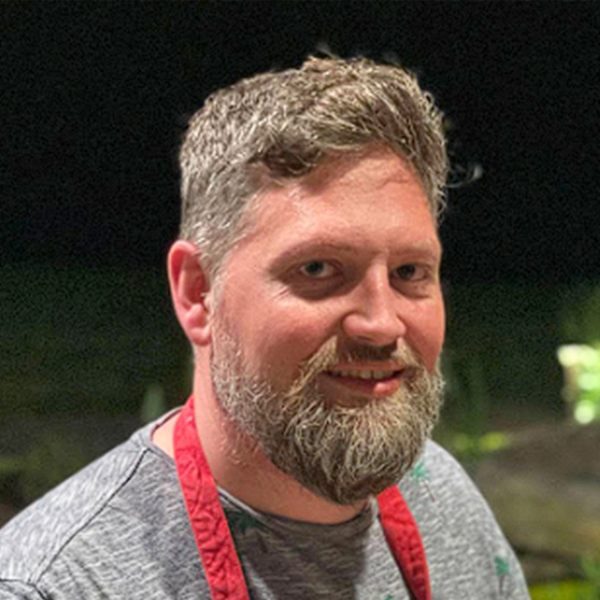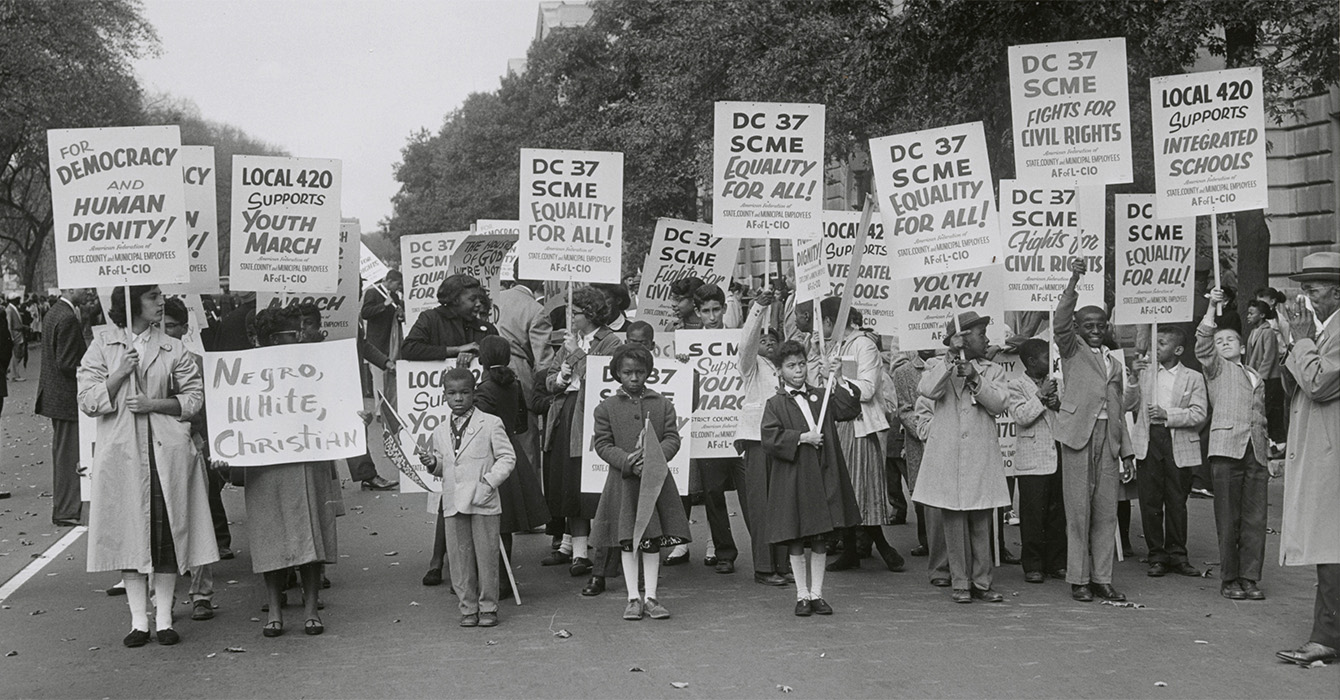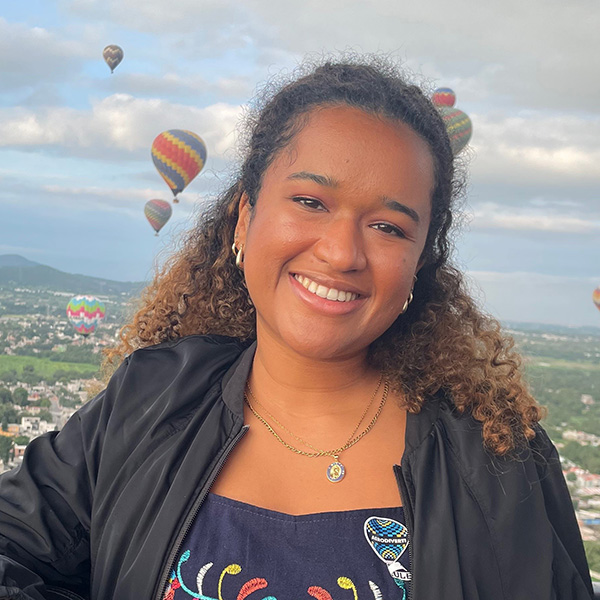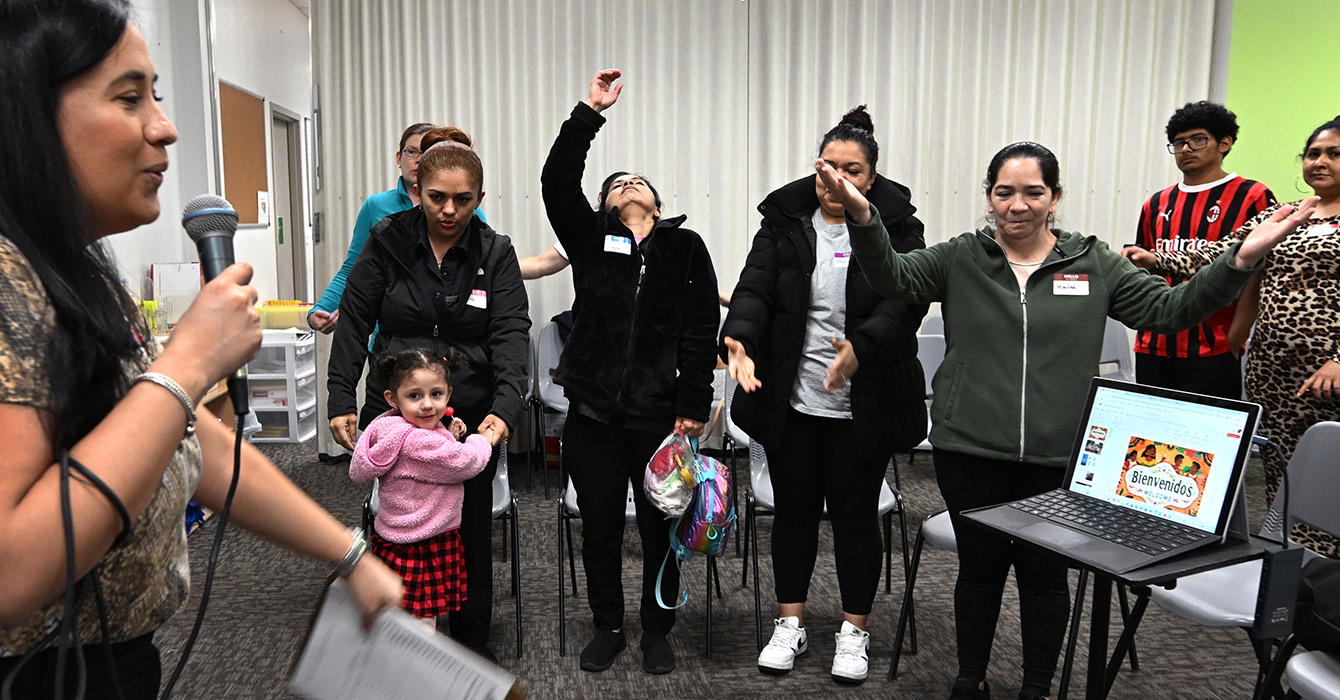Richard Rohr famously described each person’s life as searching out a lever and a place to stand. Simplistically, the lever describes the skills to make change; the place to stand describes having the position and power to use those skills.
There are many faithful people who have discerned the importance of dismantling racism. Some have positions in church leadership — lay or ordained — while others command the respect of their communities even if they don’t have formal leadership roles. They have a place to stand, and they must seek out the necessary skills, the lever, to bring about the desired change. To implement that change from those positions, there are conversations, exposure to new people and ideas, books, movies, and maybe eventually even curricula.
Longing to repair the age-old breach that could not be ignored in the tumultuous summer of 2020 — in ourselves, in our world and in the places we stood (serving children and families at churches in the Chicago area) — the two of us looked for the lever we could deploy to make change.
Finding none satisfactorily grounded in faith, we developed a curriculum ourselves (really, a set of stories) and shared it with 20 families in our parishes in 2021. Only later did we come to see how there was another essential element at work that we hadn’t noticed.
We had been drawn together in partnership through the desire to dismantle racism in our world, and that relationship proved to be the secret ingredient — the fulcrum, the often overlooked piece that supports the lever and allows it to pivot to bring about change.
As others wanted to learn about our work, the element of partnership was quickly drawn out. As soon as we offered to share what we’d developed, cohorts of seven to 10 participants from different Christian communities and denominations around the U.S. and Canada began convening. They were tentative strangers at first, but soon — usually after our first meeting — each recognized the sincerity and authenticity of the others.
Weekly sessions quickly became places of vulnerability and prayerful support, allowing deep personal reflection and growth and affirming to participants that they were not alone in the audacious quest to dismantle racism. The great success of each cohort was certainly anchored in the stories created, but the true strength, the fulcrum, was in the relationships.
As we walked alongside each cohort, we came to see not only how much there was to gain from the collective wisdom of these amazing groups but also how much the relationship and partnership between the two of us had allowed us to face our fears in the politically charged and personally sensitive work of dismantling racism.
There were so many fears, it turned out: of angering people in our community, of not being received with the loving and liberative gift we hoped to offer, and also of discovering ourselves to be flawed, transmitting our own internalized white superiority without realizing it, enacting age-old scripts of our identities, intertwined with the systems of domination, colonization and power that raised us.
We cannot engage those fears alone. We cannot dismantle the systems of racism that live inside us alone. And we cannot hope to dismantle racism elsewhere if we cannot first notice its heavy hand at work within us.
The relationships turned out to be everything. This is of course a deep Christian wisdom not isolated to dismantling racism, but it’s a wisdom that has been falling out of favor in our churches and in all the institutions of our world. The gifts of community are described in Scripture among the early apostles and would later draw flocks of individuals into monastic communities.
But these days, the relational work of community gets a bad rap. It’s described as hard, bureaucratic and slow. Committee structures in churches and elsewhere get panned for being ineffective and tedious. All of this might be true, but these patterns of community relationship have great gifts to offer. Our work reminded us of those gifts.
While we didn’t plan it intentionally, our cohorts were grounded in relationship in several ways. We encourage everyone to bring a partner with them into our Zoom-based sessions. Partners who know a particular context are helpful so that a relational team is leading the work of dismantling racism, not just a passionate individual.
The cross-denominational draw of our cohorts, possible mostly through the Zoom-based world that’s emerging, has opened up discussion beyond our particular cultures. Whether participants are describing the dynamics of their vestries, consistories, dioceses or synods, brainstorming becomes more open when we can imagine past the cultural norms of our religious silos. That necessity encourages deeper, more curious networks beyond the assumptions of our closest associates.
The cohorts quickly became places of connection and shared vulnerability, more than “training.” Our story scripts were the starting point and provided a theological framing and pedagogical approach, but each of the cohorts and individuals significantly adapted and modified those stories according to their own experiences and their own authentic connections to the story of racism.
Because we sincerely invited people to offer their authentic contributions, we found that participants were quickly all in, sharing deeply and working constructively with the group to wonder around these big topics. The relationships have extended to alumni gatherings, where the network expands to all our trainees, now more than 100 people, with participants currently signing up for the 12th and 13th cohorts, to convene via Zoom in the fall.
Relationships are essential, because dismantling racism takes us into deeply personal places, where an exterior perspective can be a lifeline. This work can be isolating, further exacerbating our fears. Even within “liberal” communities, cohort members have reported worrying about their jobs because they are bringing up issues of race.
In “conservative” areas, this nuanced work inevitably gets lumped in with “critical race theory” and accusations of being “political.” Those are hard accusations for seasoned clergy leaders to weather, let alone inspired lay leaders. The relational networks of the cohort provide perspective to support leaders through these challenges.
Just as we seek to leverage our skills and our positions to dismantle racism, the insidious power at the root of racism is leveraging our deep human fears to tell us who we are: that we are better than others, that some are better than us, that we do not have enough.
This is not the story that God holds for us. We need relationships, communities and networks, to remind us of the grandeur of who we truly are in God. It is relationships that make the difference in the struggle. With each other and with God’s help, we can dismantle racism.
We cannot engage those fears alone. We cannot dismantle the systems of racism that live inside us alone.























